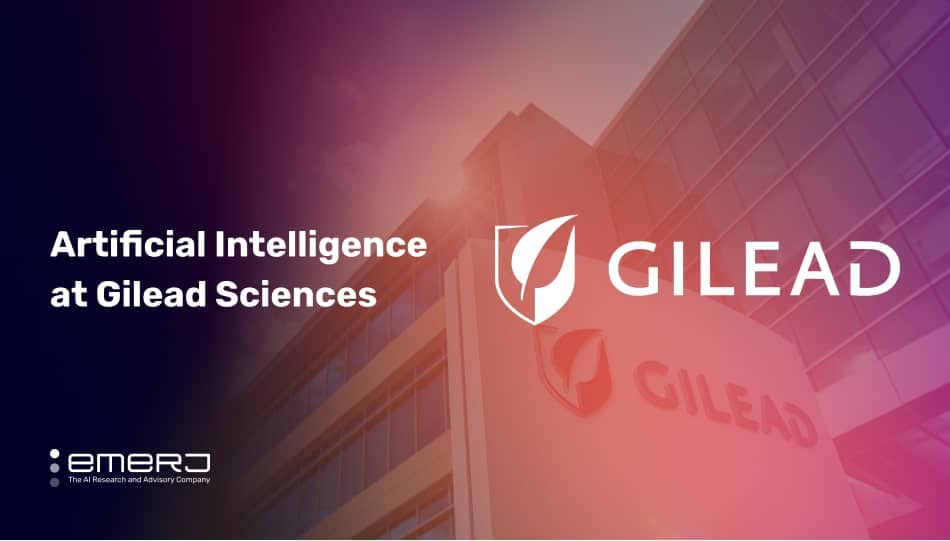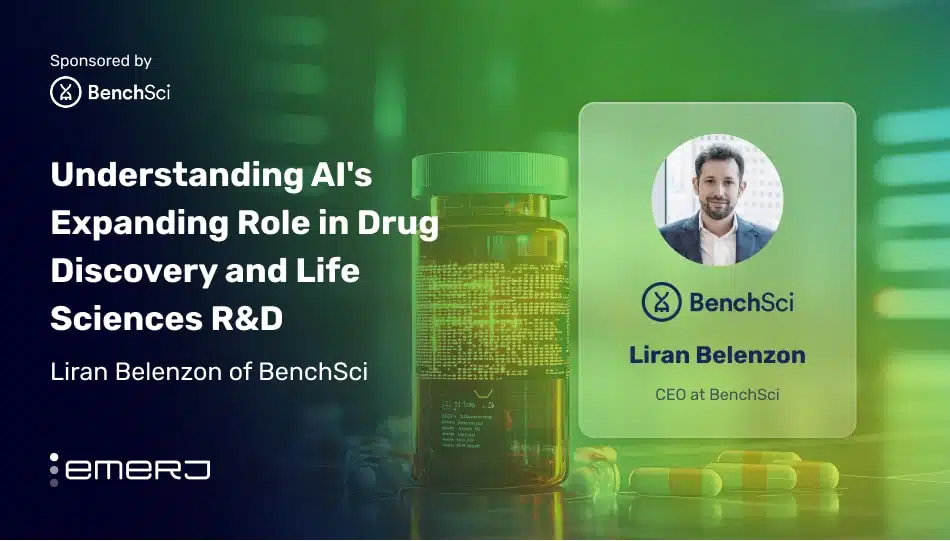Gilead Sciences, a biopharmaceutical company founded in 1987, has emerged as a leader in the development of innovative therapies for a range of diseases, including HIV, liver diseases, and oncology. With a commitment to advancing the field of medicine, Gilead has increasingly recognized the vital role that AI plays in its operations. Gilead Sciences achieved an annual revenue of approximately $28.3 billion in 2024, driven by its robust portfolio, and employs around 18,000 people globally, reflecting its substantial size and reach within the biotech industry.
According to Gilead’s leadership, AI enhances the company’s research capabilities and improves efficiency in its clinical and operational processes. This strategic adoption of AI aligns with the company’s goal of providing timely and practical solutions to pressing healthcare challenges.
This article examines two AI use cases that serve Gilead’s business goals:
- Cutting search time and enhancing productivity: Implementing a search tool powered by machine learning and natural language processing builds an enterprise search tool to find information 50% faster.
- Leveraging generative AI (GenAI) to optimize drug discovery for complex targets: Deploying GenAI and machine learning to address complex protein targets with limited training data, aiming to enhance prediction accuracy.
Using ML to Cut Search Time and Boost Productivity
Pharmaceutical organizations often face significant challenges in managing vast amounts of data spread across multiple systems, including structured databases and unstructured sources like PDFs and emails. A research paper from the University of Medical Sciences, Tehran, Iran, highlights how fragmented data silos make it difficult for teams to access critical information, leading to time-consuming manual tasks and delays in decision-making.
These inefficiencies hinder productivity and slow down essential processes such as drug development, regulatory compliance, and supply chain management. To stay competitive, companies need scalable solutions that centralize data, integrate diverse formats, and provide accurate insights through advanced AI and machine learning capabilities.
Per a case study published by AWS, Gilead faced the challenge of increasing staff productivity and streamlining internal data management within its Pharmaceutical Development and Manufacturing (PDM) business unit. Gilead aimed to accelerate the development of therapeutic treatments for life-threatening diseases. To achieve this, Gilead sought to build a scalable enterprise search tool using AI and machine learning to centralize and provide predictive analytics for their data.
However, for the tool to consistently produce relevant results with each natural language query, the company needed a set of solutions that would organize both structured and unstructured data from up to nine enterprise systems and documents from knowledge repositories.
Hence, the company partnered with AWS to leverage the AWS suite of services.
As per the case study published by AWS, Gilead’s objectives were:
- Increase Productivity: Reduce the time and effort required for staff to find relevant information.
- Streamline Data Management: Organize both structured and unstructured data from multiple enterprise systems.
- Accelerate Drug Development: Enhance the ability to derive insights from regulatory, compliance, supply chain, and manufacturing data.
To accelerate its project timeline, Gilead’s PDM team leveraged Amazon Web Services (AWS), including Amazon Kendra.
Amazon Kendra is an intelligent enterprise search service by AWS that uses machine learning to help users find information across various data sources using natural language queries.
Gilead’s PDM team integrated Kendra with their newly built data lake in Amazon S3, which served as a centralized repository for approximately 250,000 documents and 1 TB of unstructured data from up to nine enterprise systems.
Per the AWS website, here is how AWS Kendra works:
- Ingest data:
- Connect to Data Repositories: Amazon Kendra connects to various data sources using built-in connectors, such as Amazon S3, Microsoft SharePoint, Salesforce, and databases like Amazon RDS.
- Index Documents: Kendra indexes the documents from these data sources, extracting text and metadata. This process includes automatically synchronizing the data source with the Kendra index to keep it updated.
- Optimize Results
- Apply ML Models: Amazon Kendra uses machine learning models to process and enrich the indexed data. The process includes natural language processing to understand the context and intent of the content.
- Customize and Rank Results: Kendra customizes search results based on user needs and ranks them using ML-powered semantic ranking technology to ensure highly accurate answers.
- Deploy Search
- Integrate with Applications: Deploy the search functionality into various applications, such as SaaS platforms, self-managed OpenSearch, or CRM systems like Salesforce through integrations like Engage360.
- Provide Search Interface: Users can submit search queries through a single search interface, and Amazon Kendra returns relevant, ranked results quickly, enhancing internal search experiences for employees and improving customer interactions.

Screenshot of AWS Kendra works (Souce: AWS Kendra)
AWS claims the following business results for Gilead:
- Built an enterprise search tool that uses AI and ML in less than 1 year
- Reduced manual tasks related to data management
- Cut search times by roughly 50%
- Increased cost savings
AWS also claims a 25 percent increase in employee productivity with AWS Kendra.
Leveraging Gen AI to Optimize Drug Discovery for Complex Targets
Drug discovery is a costly and time-intensive process; the National Centre for Biotechnology Information notes the average cost to bring a new drug to market remains at $2.8 billion. Traditional methods often struggle with complex protein targets and insufficient training data, leading to inefficiencies and high failure rates—approximately 90% of drug candidates fail in clinical trials, per the stats given by The American Society for Biochemistry and Molecular Biology.
In a press release, Gilead publicly announced its partnership with Genesis Therapeutics to discover and develop small molecule therapies. The primary objective was to use Genesis’ GEMS AI platform to generate and optimize molecules against targets selected by Gilead. The collaboration also aimed to address patient needs by targeting protein targets with limited relevant training data.
Genesis Therapeutics is a biotechnology company that uses AI to discover small-molecule drugs. Its product- Genesis GEMS (Genesis Exploration of Molecular Space), integrates deep learning predictive models, molecular simulations, and molecular GenAI to generate and optimize molecules for complex targets.
While Genesis Therapeutics has not disclosed the specifics of its AI platform, research from the Institute for Applied Cancer Science, MD Anderson Cancer Center in Houston, TX and the Department of Chemistry-BMC at Uppsala University in Uppsala, Sweden, outlines the typical workflow of an AI-driven platform for small molecule discovery as follows:

A chart from a study conducted by the Institute for Applied Cancer Science, MD Anderson Cancer Center in Houston, TX and the Department of Chemistry-BMC, Uppsala University, Uppsala, Sweden depicting the AI-DMTA cycle of drug discovery. (Source: Drug Discovery Today).
As the collaboration was established just two months ago, updates on its progress or outcomes have yet to be shared. However, external research from the National Institute of Pharmaceutical Education and Research-Ahmedabad (NIPER-A) highlights that the integration of AI in drug discovery enhances efficiency, reduces costs, and improves prediction accuracy.
Techniques like Quantitative Structure-Activity Relationship (QSAR) models and virtual screening enable the prediction of physicochemical properties, bioactivity, and drug-target interactions, thereby streamlining the drug design process. Additionally, AI aids in clinical trial optimization, patient selection, and real-time data monitoring, further accelerating the development timeline.














